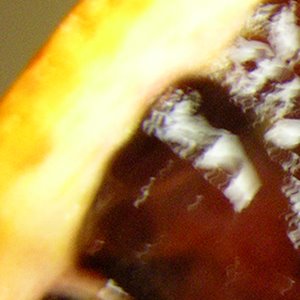One thing that always astounds me enough to keep me returning to writing is the ineluctable fact that it connects the writer and the audience so intimately. Consider for instance, Sid Miller’s comment in Blood Orange Review 1.4: “I guess I’ve never been asked why I write, but I suppose the answer is something akin to the answer a dog might give to why he eats grass—a deep rumbling in the belly and the hope of keeping it down.” And isn’t it exactly what it feels like—that inexplicable, compelling hunger to say what needs to be said? Or, one reader sent in a bio with her submission that stated, “I want a bulldog.” Such little revelations as this and we can glimpse a bit of truth and leap the disconnect that all too often leaves us alien to one another.
I think Blood Orange Review’s latest issue satisfies one of the things we look for most during the holiday season: human authenticity.
It was Walt Whitman who said, “I sound my barbaric YAWP over the rooftops of the world.” I have one wish for Blood Orange Review for the coming year: that people continue to use the journal as a roof from which they can holler their most potent songs—yawps or otherwise.
H.K. Hummel, Co-editor
Blood Orange Review
As Blood Orange Review prepares to enter its second year, Heather and I have been reflecting on the work we’ve assembled in 2006 and where we want to go next. We’ve learned a lot from each other, from writers and artists around the world, and from other literary publishers, both online and print. Each issue is an amazing feat of collaboration, and we’re exhilarated by our latest issue, a compendium of voices that shows how vibrant and engaged a virtual arts community can be.
In celebration, we’d like you to start off with “Have Some Cake,” Sara Oliver Gordus’ short story about office relationships. We’re also very excited that this final issue of the year features the work of international photographer Erwin Stäheli, whose black and white photographs comment on the junction between urban life and the natural world. Much more awaits you here.
Since this is a time of wishes and resolutions, I have a few for the new year.
My List:
1) I want to read more longer short stories (at least 2,000 words) with developed, believable characters, strong voices, movement, and developed themes that elevate the plot beyond a recitation of events.
2) I want to see writers and artists contribute to our new Swing Shift Writer’s Series, featuring field reports from working artists around the country. Go here for guidelines.
3) I want to continue to hear from readers, writers, artists, and fellow editors who make the long hours worth it.
4) And I want a puppy.
It’s been a wonderful, productive year. We wish you all the same. In the words of Jason Steeves’ “Lift,” published in the current issue of Blood Orange Review:
We toast.Stephanie Lenox, Co-editor
Plastic glasses touch, and we simply say “Dink.”
To us, to love, to everything everywhere. Dink.
Blood Orange Review









